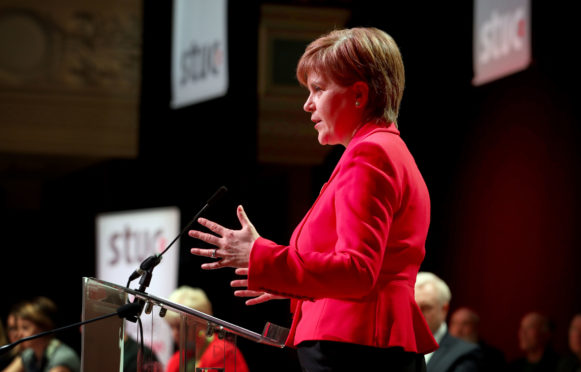
Nicola Sturgeon has warned a new currency would be no magic wand to improve the economy of an independent Scotland.
The First Minister said yesterday Scots deserved to know any transition to a new currency was properly planned and robust before the SNP conference debated the issue next week.
How quickly an independent Scotland should ditch the pound has divided opinion in the party.
The SNP leadership has put forward a plan to drop the pound, but with no fixed timescale and with six tests that have to be met.
However, local branches are challenging that, with amendments calling for the new currency to be established in the first five years of an independent Scotland or “as soon as is practicable after Independence Day”.
During the 2014 referendum campaign, then-Chancellor George Osborne ruled out the Yes campaign’s plan for formal currency union, which would have allowed an independent Scotland to use the pound.
Yesterday, ahead of conference, Ms Sturgeon said a new currency would not be a “magic wand that cures all economic ills” and it would be important to reassure people it would be well planned and in the country’s best interests.
Former SNP Westminster finance spokesman Roger Mullin, one of the members who drew up the SNP’s Growth Commission independence “blueprint” published last year, said it was “eminently sensible” to leave timescales about moving to a new currency to a future independent Scottish government.
He said those calling for a more rapid move to a new currency would be repeating the mistakes of 2014, when the focus became on the “narrow issue of currency” rather than wider economic policy.
But Richard Murphy, professor of practice in international political economy at City, University of London, argued setting up a currency immediately was fundamental to a new independent country.
He said: “You either go for it or you don’t.
“The compromise to say we will do it but we will use the pound means you will end up with half-hearted, non-delivered, half-baked political crisis, which will roll on and on and on like Brexit.”

Enjoy the convenience of having The Sunday Post delivered as a digital ePaper straight to your smartphone, tablet or computer.
Subscribe for only £5.49 a month and enjoy all the benefits of the printed paper as a digital replica.
Subscribe